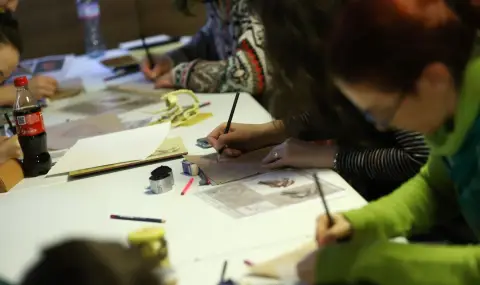In recent weeks, the Ministry of Education and Science stirred the spirits with the draft Ordinance amending and supplementing Ordinance No. 11 for evaluating the results of student learning. In other words, the Second Chance Payment Ordinance. Milena Petkova commented on this for news.bg.
The second chance in question was given with the blessing of the MPs who adopted changes to the Law on Preschool and School Education. With these changes, it became possible for high school seniors who are not satisfied with their assessment of the compulsory matura in Bulgarian language and literature or in a second subject of their choice, to have the right to take the exam a second time.
This right will be able to be exercised within a year - months after matriculation or with the next graduating class. One time. The assessment will not change the matriculation result in the diploma, but will be noted in a certificate that can be taken into account when applying to a higher education institution. Thus, in prom formation, the selected university will consider the higher grade, regardless of whether it is from a regular matriculation exam or from a second attempt.
The delicate detail is that, according to the project, the second attempt will be paid. Exactly how much it will cost, no one knows yet, since there is no specific fee amount for additional matriculation examinations in the MES Fee Tariff.
Closest in meaning is the fee for validation of competences acquired through non-formal education and informal (independent) learning. A fee of BGN 30 is charged for conducting a competency validation exam. Another BGN 10 costs the issuance of a certificate. A sum of BGN 40 is established, which could also be accepted as a fee for a second matriculation examination and the issuance of the relevant certificate.
However, here comes the next problem - why should it be paid at all. Not long ago, the ombudsman Diana Kovacheva informed the Minister of Education Galin Tsokov that she had received complaints from parents and future adults who were concerned about the fee provided for in the regulation, the amount of which has not been specified.
We have to admit that after the state has generously canceled tuition fees for state-order students and doctoral students, such an intention is illogical. Moreover, candidates for a second chance will take the exam in already planned sessions, which, according to the ombudsman, does not lead to an increase in costs.
According to the supporters of the proposal, the fee will have a disciplining effect - you have paid - there is no way to refuse. In addition, the attitude of paying nothing, even though money is given for private lessons and mock exams, must be ended.
The supporters of the innovation have another argument - the Ministry of Education and Culture needs this money, since it is about organizing a process that involves costs - custodians, reorganization of the school day, engagement of an examination committee, etc. And after the state took some fees, the second chance will burden the budget. However, BGN 136 million were regretted.
Outside of the money talk, we can argue about the need for second chances. There is hardly a student or parent who would object to the idea. Whether this opportunity really leads to better performance is another question.
If you are a high school senior who has been taking private lessons for a whole year to prepare, and has taken a mock matriculation exam, it would be logical for the result to actually reflect your knowledge - that is, to be expectedly good. Yes, there is a psychological moment, but with good preparation it is also negligible.
There may be unforeseen factors that thwart your good performance - such cases are rare, but they deserve a second try. Another argument could be luck - it didn't happen in which you can best demonstrate your knowledge. And he is not very convincing, since nothing can guarantee that second time luck will work. Parental ambition is not to be neglected - how many parents think that their child does not deserve more?
After all, matriculation exams reflect what you have learned over the years, not just in the last months of active preparation. It could also be argued whether a second attempt with the next graduating class makes sense when you have lost the momentum for learning and moved away from this kind of activity.
Generally speaking, this exhausts the group that would be interested in the second chance. For the rest, this possibility is not a necessity.
And finally - whether the second chance will globally improve the results of the matriculation exams, which are becoming more and more shameful with each subsequent year.
Let's remember that the average grade of the compulsory matura in Bulgarian language and literature last year was 3.93, 2.5 points lower than the one in the previous year. It is the lowest since 2008, when matriculation exams have existed in their current form.
With two full sixes (mandatory and optional matriculation), there were only 30 high school graduates, with two weak ones over 1,000.
The results were defined as "historically low" and again there was talk of changing the format of the matriculation exams. So far there is no change.
But there is already a second chance, which is unlikely to show an upward trend in matriculation, although paid. The latter is not final.
